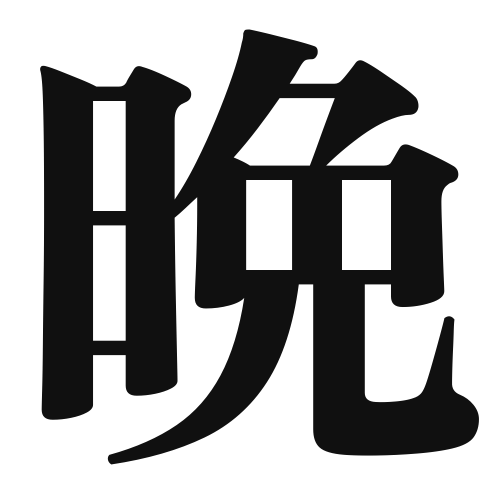1. Overview of Meaning
The kanji “晩” (ban) primarily means “evening” or “late.” It is often used to refer to the time of day when the sun sets and night begins.
2. Formation and Radical
The kanji “晩” is a compound character (会意文字) that combines the elements of “日” (sun) and “晚” (late). The radical of this kanji is “日,” which relates to time and light.
3. Examples of Usage
Common words and phrases that include “晩” are:
- 晩ご飯 (ばんごはん, bangohan) – dinner
- 晩年 (ばんねん, bannen) – later years, old age
Example sentence in daily conversation:
「今晩、晩ご飯は何を食べますか?」 (Konban, bangohan wa nani o tabemasu ka?) – “What are we having for dinner tonight?”
4. Synonyms and Antonyms
Similar kanji with related meanings include:
- 夜 (よる, yoru) – night, which refers to the time after evening.
Antonyms include:
- 朝 (あさ, asa) – morning, which signifies the time after night.
5. Cultural and Historical Background
The kanji “晩” is closely related to Japanese culture, particularly in the context of daily life and meals. It is often associated with family gatherings during dinner time.
Proverbs and idioms that include “晩” are:
- 「晩酌」 (ばんしゃく, banshaku) – evening drink, which refers to enjoying a drink in the evening, often after work.
